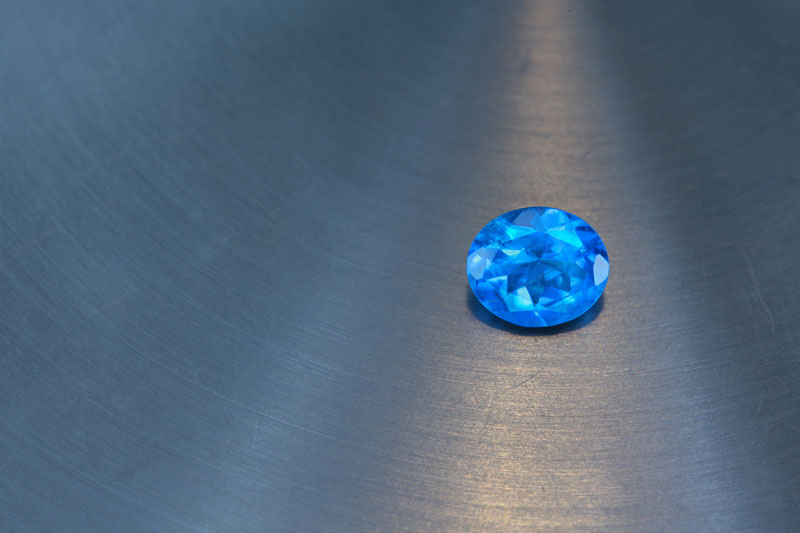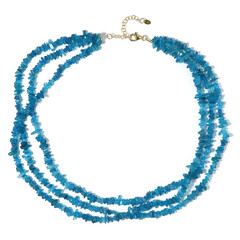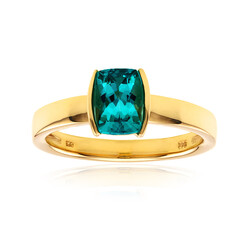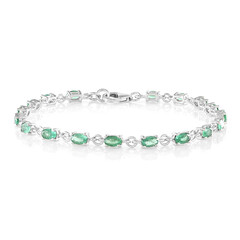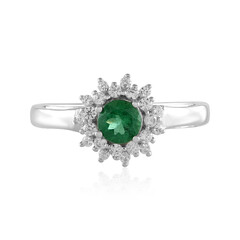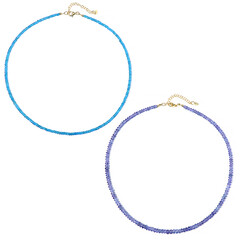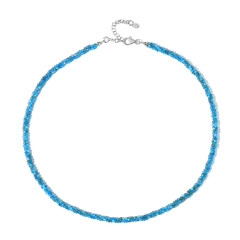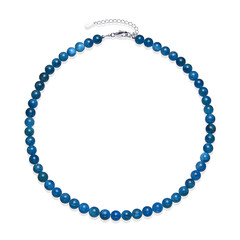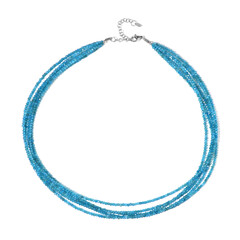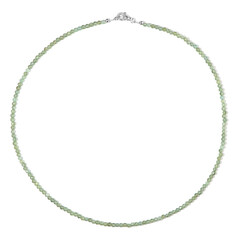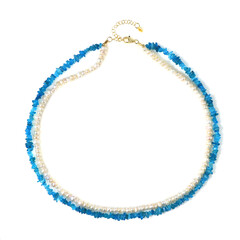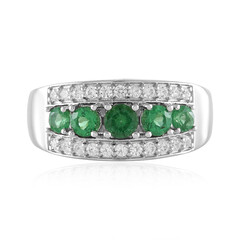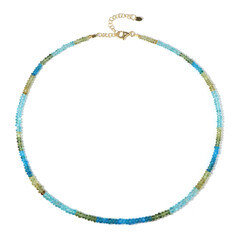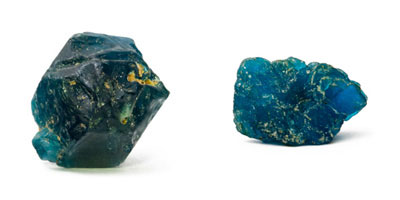
Name & History of Apatite
The reason behind Apatite’s name is quite clear, it comes from the Greek 'apatao' meaning to deceive. Superficially, Apatite looks very similar to Paraíba Tourmaline, but is only a fraction of the price. Apatite's wide range of colours is one of the reasons for its historical confusion and Paraíba Tourmaline aside, it has also been mistaken for Peridot and Beryl. In Greek mythology, the goddess Apate was one of the evil spirits released from Pandoras box, she was the embodiment of deceit.
Composition of Apatite
Apatite belongs to the allochromatic group of gemstones, meaning other coloured. Rare earth elements in the crystalline structure compete during the gemstone’s formation, defining the gemstones colour. In its ‘pure’ state, Apatite, like all other coloured gemstones, would be colourless. According to the foreign elements presence, Apatite varies from green, to yellow, to blue and yellow-green.
Properties of Apatite
Apatite comes in almost every shade of blue, including caribbean blue, mediterranean blue, neon blue, ocean blue, 'paraíba-esque' blue and 'sapphire' blue. It can also be found in chocolate, green, grey, pink and purple, teal, violet, white and yellow. Translucent Apatite can display a good cat's eye when cut 'en cabochon', while a cryptocrystalline (small crystal) sky blue Apatite variety has been used as an ornamental stone.
An attractive brilliance should sparkle (scintillate) throughout the gem but this is affected by size, clarity, colour saturation and faceting quality. Eye clean clarity is standard for Apatite, no visible inclusions when the gem is examined 15 cm from the naked eye. Common shapes for Apatite are baguette, ovals and rounds, faceted using step or mixed cuts.

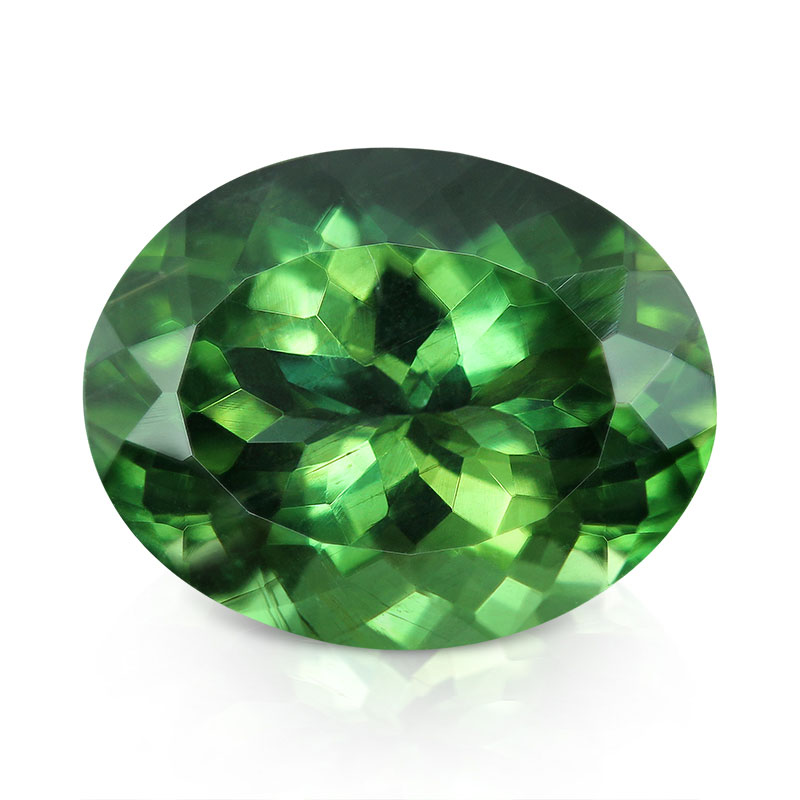
Source of Apatite
Despite being found in many countries, the main sources from Apatite are Brazil, Madagascar and Mexico. The southern Madagascar deposit (Anjahamiary Pegmatite) near Fort Dauphin is the source of the more vivid colours, with the darker teal blues coming from the island's North. Yellow Apatite can be found in Mexico this country produces canary to honey yellows as well as yellow-greens and very occasionally greenish-yellows or limes

